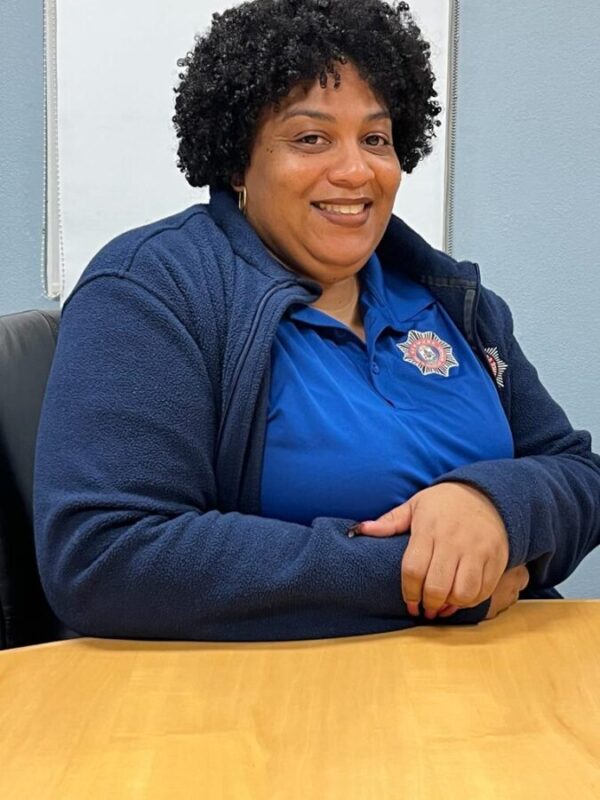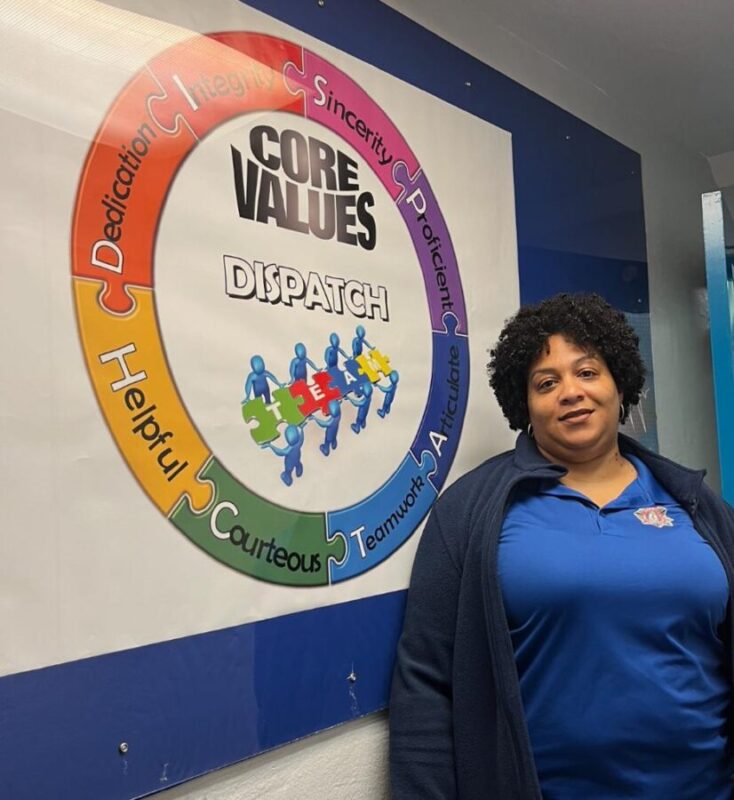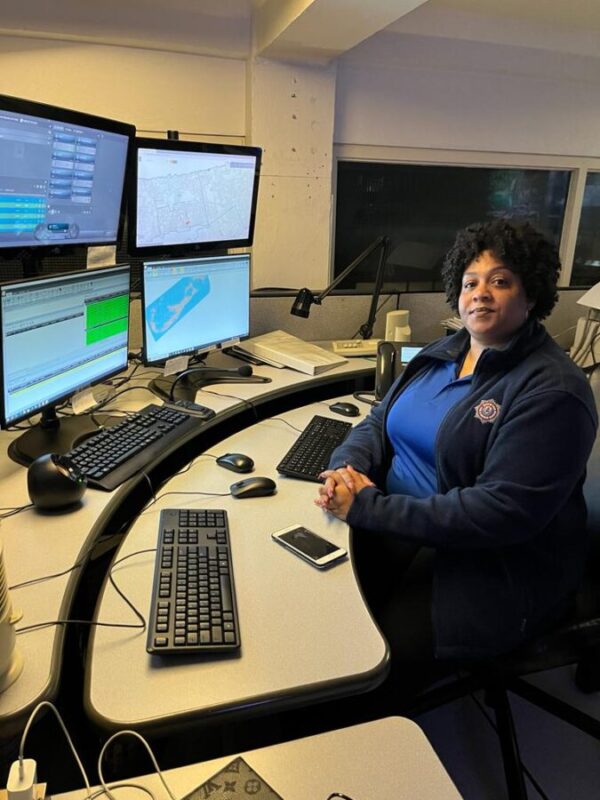Imagine you’ve been in an accident. You’re in pain, but you don’t know why. You’re dizzy, it’s dark, and no one is around to hear your calls for help. You finally find your phone and manage to dial 9-1-1. The voice on the other side of the connection is now your only lifeline, and there are some things you need to know about that voice.
Emergency Medical Dispatchers (EMD) are heroes. They do what they do because they have a visceral urge to help people. The kind of work they are charged with demands poise in the face of untold pressure, alertness, focus, and readiness to listen, interpret, and make vital decisions on behalf of each and every caller they engage with over the course of a shift.
Working out of a well-equipped call-centre in the Hamilton Fire Station on King Street, Bermuda’s EMDs are trained to provide world-class service. Fully certified by the Association of Public-Safety Communications Officials (APCO) our local heroes are trained in communications, public safety, and provided with a thorough overview of the emergency response facility available on island.
Sixteen-year veteran Janae Foley loves the work she does, and wants the Bermuda public to know that the very best thing you can do when calling 911, is to be clear.

“When calling 911, the caller should consider that the faster we can get the information, the easier we can make a decision to get the vehicles out. So, the faster that we can get the information from them, the quicker we know which vehicles need to go.”
Clarity, then, is paramount. It does help that each and every call to 911 is answered by two EMDs. Ms Foley expounds:
“There are two persons on the phone; there’s the person talking to them, and there’s the person sending the help at the same time. So as soon as that person gets the pertinent information, the help is dispatched.”
Of course, being the first voice a person hears during a time of, potentially, great trauma comes with its own set of pressures, expectations, and risks. EMDs must be level headed, and understand that people under duress may inadvertently trigger things in them – and responding to these triggers in the moment is something that can NOT happen.
“Emotions are easily transferable,” says Ms Foley, “So, just depending on what it is, and the way the person is reacting, it’s sometimes very easy for that emotion to transfer. But you have to buck it, and keep it at bay.
“You get people who are upset; they hear you, but they don’t hear you – but not on purpose, because they’re in a bad space. You have people who are upset – they’re not very nice to you, but you have to do what you have to do, to get them what they need. I always tell the new hires, ‘Listen, 99% of people are scared. You have one percent of people that are always difficult, and they’re going to be difficult, and you have to find a way around that to get them what they need.’ And it’s not personal – the way that a person is acting on the phone – it’s not personal to you, so don’t take it on.”
Although it’s near-impossible to plan for every potential scenario, the EMDs do have some training to help them manage the stress of being that first point of contact for people in urgent need of help.
“We have something called CISM (Critical Incident Stress Management) in the event that something is bothering you that much. We have members of staff we can talk to. The Red Cross also have CISM trained people; so, we can reach out if we need the extra help outside of the Fire Service. So, we have that, where we can say ‘Listen, I need someone to talk to.’ And then there’s the EAP, which is supplied by government – you can use that.
“But when it’s happening, there’s no pre-training. We haven’t had any pre-training for in that moment. There have been moments where things happen, like you may have had a really bad call in one place, and then you have another call there, and then that triggers something that you didn’t even realize was there. But you have to stick with it – once you hang up the phone, and everything’s done, you can deal with it.
“Some things bother you, some things don’t; sometimes it’s the straw that broke the camel’s back, where maybe you’ve had weeks or months mounting up – but everybody handles things differently.”
 On the topic of counselling for EMDs, Ms Foley discloses that it’s not mandatory, but it can be recommended, and is often beneficial.
On the topic of counselling for EMDs, Ms Foley discloses that it’s not mandatory, but it can be recommended, and is often beneficial.
“Your supervisor can make a recommendation that you go to counselling. We deal with people’s traumas on a daily basis, and we probably should do it just for maintenance. Like we go to the doctor, you go to your dentist so many times a year, and even your personal care – your hair, your nails, that type of thing – we should use counselling as self-care, because we are dealing with the whole community’s emotions every day.”
Of course, not ALL calls are stressful. Ms Foley beams when describing her favourite kinds of calls:
“I always like delivering babies over the phone. Some people will call you when they can’t make it to the hospital, or they already see a head, or whatever – now those are the types of calls I like.
“I’ve actually had some calls where babies were in the middle of being born. Last year I had a call from a couple. They were trying to get to the hospital, and a guy called, and was like, ‘My girlfriend just had a baby.’ I’m like, ‘The baby’s here?’ and he says, ‘Yeah. In our car.’ So, I didn’t really have to do much in that instance, besides just get the help there, to transport them the rest of the way.
“I have had times where we’re talking people through, and babies are actually born over the phone, before the help gets there. In my first year here, I was actually pregnant myself, and I had a call where a young lady thought she was miscarrying – which was pretty scary for me at the time. But I was able to sit with her, and talk to her until some help got there. I have a soft spot for women during childbirth, so I talked to her until the help arrived.”
The key to doing the kind of work required of an EMD is empathy, and an authentic drive to help fellow human beings in distress.
“I feel like you have to be empathetic.” Ms Foley concludes. “You have to be a person who really cares about people – that’s a skill you can’t teach. So, you have to really want to be in it to help our community. If you’re here for anything other than that – even if you’re looking for a ‘thank you’ (which is something that we don’t hear often) – it doesn’t make sense. You have to genuinely want to help the people in the community.”
Well, I’ll go ahead and say it; thank you.

